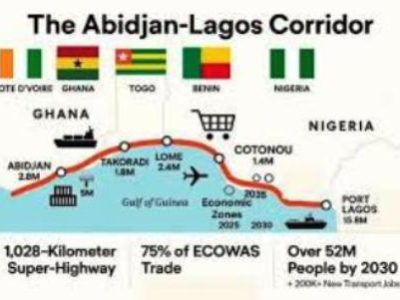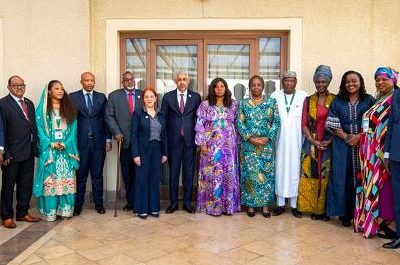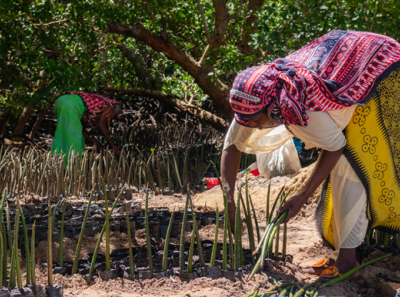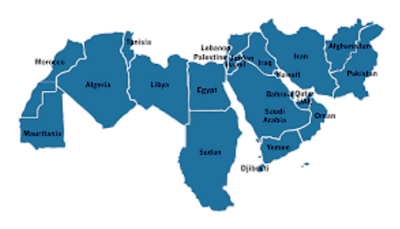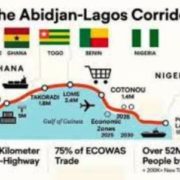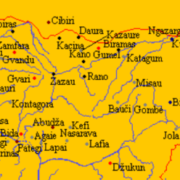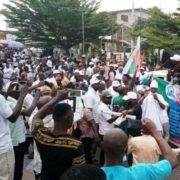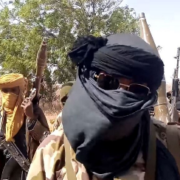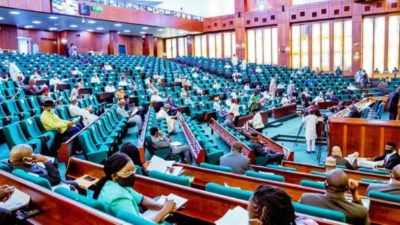In recent years, the United States has increasingly been sidelined in areas of deep economic transformation in Africa because US engagement with Africa has been primarily through militarism and military relations. The current visit of US President Barack Obama to Africa should be viewed against this background, writes Horace G. Campbell.
From June 26 through July 3, 2013, for the second time in his presidency, Obama will be visiting Africa; specifically Senegal, South Africa and Tanzania. According to the White House Press Release, “The President will reinforce the importance that the United States places on our deep and growing ties with countries in sub-Saharan Africa, including through expanding economic growth, investment, and trade; strengthening democratic institutions; and investing in the next generation of African leaders.” However, apart from this vague press release there is no clarity on why this trip is taking place at this particular moment.
President Obama’s visit comes at a moment when the world is gripped with the spectacle of a young American, Edward Snowden, fleeing the United States because he was promoting information freedom, against the militaristic and police state in America. With all the problems facing him at home – sequestration, unemployment, drums for escalating wars in Syria and divisions over immigration laws – Obama’s trip to Africa lacks substance and definition. What can he offer the continent? What does he bring to the table to justify his visit?
Both former Presidents Bill Clinton and George W. Bush visited Africa during their second terms in office. When Clinton and Bush made their journeys to Africa, the US foreign policy establishment had been guided by a three-pronged mantra. These were: (a) the notion that Africa was facing a “threat” from international terrorists, (b) that the United States had strategic interests in Africa (especially with the flow of petroleum resources), and (c) the emerging competition with China. The crisis of capitalism since 2008 and the hype about petroleum and gas self-sufficiency as a result of shale oil and new gas finds in the United States have added another layer to all. More importantly, the US plans for confronting China in Africa have been tempered by the reality that the US policy makers have to beseech China to continue to purchase US Treasury Bills.
In previous commentaries I have critiqued the imperial merits of Clinton’s and Bush’s reasons for visiting the continent. They were at least arguably more substantive and better articulated than Obama’s. The lack of specificity of Obama’s upcoming visit supports the argument advanced by some that as the first Black president of the United States, he has to visit the Africa. After all, he has visited Europe numerous times. This argument renders his visit nothing more than an item to be checked off his overarching presidential agenda. But in the context of the sidelining of US economic interests in Africa by other key players like China, Obama’s visit could be seen as one effort to boost support for US capitalists on the continent. Giving credence to this argument is the fact that Obama is visiting two of the countries also visited by the President of China, Xi Jinping, a few weeks ago – Tanzania and South Africa.
Past presidential visits had the paternalistic agenda of lecturing Africans on governmental transparency, democracy, human rights, fight against corruption, freedom of speech, etcetera. Yet, given the current climate of scandals orchestrated by the media in the U.S, Obama would appear hypocritical in making these panned statements about supporting democracy in Africa. While that has not stopped past presidents, this time the cat is out of the bag. The multiple scandals surrounding the banks and the extent of the corruption of Wall Street exposed by Matt Taibbi and others have dwarfed any discussion of corruption in Africa.
America’s inability to rein in the mafia-style activities of the bankers is open and in full view of the world audience. In this commentary I want to place President Obama’s African trip in the context of the depth of the political and economic crisis in the United States. Starting with the efforts of the G8 in calling for the western mining companies to follow laws and pay taxes, this commentary will reference the success of the Pan African opposition to Africom and US militarism that has predisposed the Obama administration to retreat from the perpetual Global War on Terror as conceived by the neo-conservatives. The conclusion will again call for the peace and justice forces to support reparative justice so that the relations between the citizens of the United States and the citizens of Africa can move in a new direction.

While US focus is on militarilisation, China is focusing in economy
US policy in Africa in disarray
The previous justifications for US engagement had been part of the logic for the establishment of the US Africa Command. For a while there was the fiction that the United States was supporting growth and trade (via the Africa Growth and Opportunity Act (AGOA)), but the militarization of the engagement with Africa intensified after then Vice President Dick Cheney’s energy task force had designated African petroleum as “strategic” and colluded with Donald Rumsfeld to establish the Africa Command (AFRICOM). However, there was never any support for the idea of an African military command. It was universally opposed in Africa (except for the client state of Liberia). Within the United States, progressive scholars in the Association of Concerned African Scholars (ACAS) called for the dismantling of AFRICOM. Since the debacle in Libya, the word AFRICOM has rarely been uttered publicly by the Obama White House. The fact that the Obama administration is retreating from perpetual war and is disguising the militaristic activities of the Wall Street cabal is one more testament to the power of popular organizing to oppose militarism.
In June 2012, the White House issued a new policy statement on Africa. What was striking about this new White House Statement was that there was no mention of the US Africa Command. The document was titled, “Policy towards Sub-Saharan Africa.”
Many Africans did not pay much attention to this old ruse of seeking to divide Africa between so called sub- Saharan Africa and North Africa. The reality of the African Union is something that the US policy makers do not want to recognize; hence the State Department maintains the nomenclature of sub-Sahara Africa. In the new document of June 2012, the Obama White House spelt out four pillars of US policy towards Africa, repeating the talking points of George W. Bush minus the Global War on Terror language. “The United States will partner with sub-Saharan African countries to pursue the following interdependent and mutually reinforcing objectives: (1) strengthen democratic institutions; (2) spur economic growth, trade, and investment; (3) advance peace and security; and (4) promote opportunity and development.” In the midst of the exposures by Edward Snowden of the massive “architecture of oppression” that is embodied in the surveillance programs of the U.S., the country’s policy makers are now on the defensive as diplomats all over the world absorb the extent of the electronic surveillance program operated by the United States National Security Agency.
When John Kerry spoke at the 50th anniversary of African Unity in Addis Ababa in May 2013, the U.S. Secretary of State did not mention the U.S. Africa Command or the War on Terror. Instead John Kerry spoke of the fact that his wife, Teresa Heinz Kerry, was part of the anti-apartheid struggles in Southern Africa when she was a student at the University of Witwatersrand. The Obama White House sought to build on the cultural capital of the U.S university system by the launch of Young African Leaders Initiative (YALI). According to the Obama White House the “Young African Leaders Initiative (YALI) is a long-term effort to invest in the next generation of African leaders and strengthen partnerships between the United States and Africa. This wide-ranging effort has been led by the White House and the U.S. Department of State in partnership with the U.S. Agency for International Development (USAID) and the Peace Corps. The next phase of YALI will develop a prestigious network of leaders across critical sectors, cement stronger ties to the United States, and offer follow-on leadership opportunities in Africa, with the goal of strengthening democratic institutions and spurring economic growth.”
Despite these nice words, in the era of sequestration, the Obama administration could not find the funds to support this Initiative and the State Department has been calling on American universities to bear the costs of the summer programs that are planned under the YALI. This further reveals disinterest and lack of resources by the American Congress to support any form of U.S. policy towards Africa on matters not related to militarism. While there are no funds to support educational exchange, in the week of June 19, 2013, the US Senate under the initiative of Republican Senator James Inhofe authorized, “the Department of Defense to obligate up to $90 million to provide logistical support to the national military forces of Uganda to mitigate or eliminate the threat posed by the Lord’s Resistance Army (LRA) and bring an end to the murderous campaign of LRA leader Joseph Kony.”[18] This clear support of the conservatives in the United States for the Yoweri Museveni government in Kampala, under the guise of fighting Kony, comes at a moment when the Museveni leadership is being challenged, even from its own officer corps. [19] More importantly, Republican Senator James Inhofe and the conservatives who initiated this new authorization are bent on supporting a regime where there are elements who believe that same-gender loving persons should be put to death.
Jihadists from the Sahel, Kony in East Africa and Al Shabab of Somalia are the elements mentioned when there is talk from the foreign policy establishment that Africa is being overrun by terrorists and that the US need to deploy AFRICOM. These forces have been pressuring the United States government to brand Boko Haram, the extreme Islamic fundamentalists in Nigeria, as a Foreign Terrorist Organization. There has been so much opposition to this designation that the White House has recoiled from making this decision, and instead has designated three of the leaders of this organization as terrorists.
There were enough concerned scholars and activists who understood that naming the organization as terrorists would have been counterproductive with far-reaching negative consequences for Africa and for future relations between the United States and Africans. The experiences of the up and down relationship with groups in North Africa designated as terrorists has meant that many activists have been wary of way that the terrorism label has been deployed in Africa. In the past two years, there have been numerous press reports of heightened US military engagement in Africa. Reports in the Washington Post on the rising pressures of militarization carry the views of sections of the Pentagon with little reference to the actual balance of forces on the ground in the particular African societies where the US military and Central Intelligence Agency are supposed to be operating.
Horace Campbell is Professor of African American Studies and Political Science, Syracuse University. Campbell is also the Special Invited Professor of International Relations at Tsinghua University, Beijing. He is the author of Global NATO and the Catastrophic Failure in Libya: Lessons for Africa in the Forging of African Unity, Monthly Review Press, New York 2013. The is only an excerpt of a long article. The full essay can be accessed online at http://pambazuka.org/en/category/features/88001

